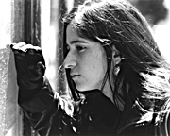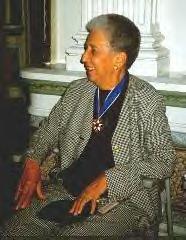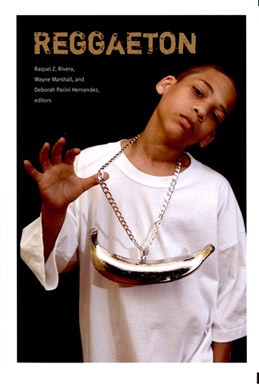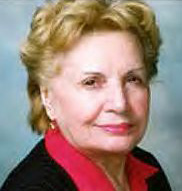Presented by Columbia University and Instituto Cervantes in collaboration with The Film Society of Lincoln Center.
Curated by Marcela Goglio and Claudio Iván Remeseira.
FREE ADMISSION. Photo ID may be required at door. To make a reservation, please reply to this e-mail. For further information, call (212)854-6698
Tuesday, November 27 , Instituto Cervantes, 211 East 49th Street. 6 p.m.-8p.m . EL CANTANTE, Dir Leon Ichaso, 2007, 116m
*Filmmaker Leon Ichaso will be present.
El Cantante is the dramatic-biography of Puerto Rican salsa pioneer Hector Lavoe. The film follows Lavoe’s (Marc Anthony) passionate relationship with Puchi (Jennifer Lopez) and his skyrocket to international fame. But even when he has it all, Lavoe is unable to escape the allure of drugs and his personal pain.
THE FOLLOWING SCREENINGS WILL TAKE PLACE AT:
Davis Auditorium, Columbia University
530/533 West 120th Street
(between Broadway and Amsterdam Avenue)
There you’ll find an iron gate and the inscription “Morris Shapiro Hall” on the wall.
Just walk through the gates and take the elevator to Davis Auditorium (one stop).
(http://www.columbia.edu/cu/cssr/davis_directions.html )
Wednesday, November 28, 8-10 pm: THE KRUTCH , Dir Judith Escalona, 2004, 29m.
*Filmmaker Judith Escalona will be present.
The Krutch is a surreal narrative about a Puerto Rican psychoanalyst with a long-suppressed identity problem that erupts with some dire consequences. The film is unique in exploring the mental anguish and shame associated with racism. Stylistically akin to German Expressionism with an eye towards Buñuel, it occupies an absurdist space that keeps it from descending into the maudlin clichés of realism. With Jaime Sánchez as the mysterious Dr. Gúzman and Cathy Haase as his unsuspecting patient Mrs. Kleist.
PRECEDED BY:
TWO DOLLAR DANCE , Dir Yolanda Pividal, 2006, 17 m
*Filmmaker Yolanda Pividal will be present.
Every weekend, hundreds of Latino immigrants pack the dance clubs of Jackson Heights, Queens. There, they meet women who will be their dance floor partners for two dollars a song. Through the eyes of Victor, a patron, and Liz, one of the ballerinas, this film dives into the solitude and expectations of men and women who leave their families and countries behind to work in the United States.
and
LA BRUJA: A WITCH FROM THE BRONX, Dir Felix Rodriguez, 2005, 50 m.
*Filmmaker Felix Rodriguez will be present
Art, labor and family blend in this intimate documentary about performance artist Caridad De La Luz, better know as ‘La Bruja’. Born and raised in the Bronx, this daughter of Puerto Rican immigrants takes the number 6 train to downtown Manhattan where she performs at popular New York City venues. She reads her poetry in Joe’s Pub, stages her one-woman show in the Nuyorican Poets Cafe, and performs at Def Poetry Jam. But opportunities are scarce and she struggles to make ends meet in an industry where ‘to keep it real’ often means to work for free.
Thursday, November 29: 8-10p.m.: SOY ANDINA, Dir. Mitch Teplitsky, 2007, 67m
*Filmmaker Mitch Teplitsky will be present.
After 15 years in New York, Nélida Silva returns to her birthplace in the Andes to fulfill a lifelong dream of hosting the Fiesta Patronal––a week of dance, music, and ritual honoring the town’s patron saint. But Neli’s changed, and so has the village. At the same time, Cynthia, a dancer raised in Queens by her Peruvian mother, embarks on her own journey, determined to know the real Peru. A cross-cultural road trip, propelled by traditional music and dance rarely seen outside of Peru, but with a universal core story: the yearning for roots and connection in a globalized world.
Friday, November 30th , 8-10 p.m. FROM MAMBO TO HIP HOP: A SOUTH BRONX TALE , Dir Henry Chalfont, 2006, 55m
*Filmmakers Henry Chalfont and Elena Martinez will be present.
The film is a portrait of the South Bronx, the beleaguered New York community that was infamously destroyed by urban renewal, arson, gangs, drugs and violence. Yet at the same time, this borough contributed enormously to the popular culture of the world and has had an impact way beyond its size. In the 1950’s, the streets pulsated with the rhythms of Cuba and the hot new urban sounds of Latin Jazz, Mambo and later Salsa. On these same streets in the 1970’s, a new generation spun records, rapped and danced to the funky beats of Hip Hop. From Mambo to Hip Hop is the story of how an oppressed community can survive and thrive through cultural expression.
Saturday, December 1st , 8-10 p.m. : WASHINGTON HEIGHTS , Dir Alfredo De Villa, 2002, 89m
*Filmmaker Alfredo De Villa will be present.
Washington Heights tells the story of Carlos Ramirez, a young illustrator burning to escape the neighborhood and make a splash in downtown’s commercial comic-book scene. When his father, a bodega owner, is shot in a burglary attempt, Carlos is forced to put his dream on hold and run the store. In the process, he comes to the realization that if he is to make it as a comic artist, he must first engage with his own community.



 Born in 1926 in Mayaguez Puerto Rico, her academic accomplishments are trumped only by her extensive work in public service. After earning her bachelor’s degree from the University of Puerto Rico, Mendez earned a Master’s Degree in Psychology from Columbia University, followed by a PhD in Educational Psychology from Yeshiva University.
Born in 1926 in Mayaguez Puerto Rico, her academic accomplishments are trumped only by her extensive work in public service. After earning her bachelor’s degree from the University of Puerto Rico, Mendez earned a Master’s Degree in Psychology from Columbia University, followed by a PhD in Educational Psychology from Yeshiva University.